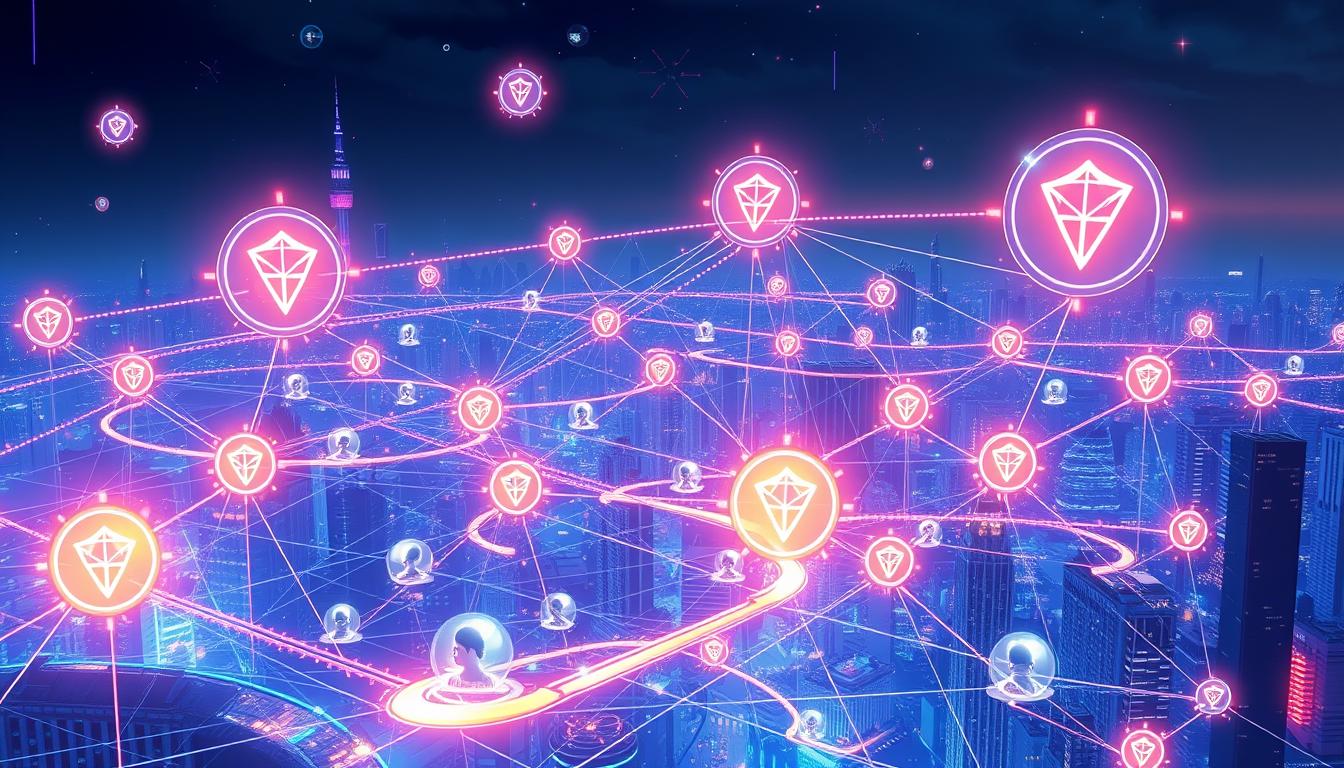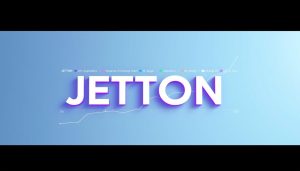Did you know more than 80% of blockchain projects now focus on decentralized governance? This is vital for building strong community ties. The TON token system is at the forefront of this change, spotlighting the importance of letting communities manage themselves. It brings decentralization into the mix, giving people the power to make big decisions together.
Decentralized governance is changing how we think about blockchain decisions. It’s creating a space where everyone’s voice matters. With the TON token, communities are steering projects and managing resources in new ways. This is totally changing how things are done in the crypto world.
Key Takeaways
- The TON token is key to decentralized governance in cryptocurrency.
- Decentralized governance fosters community engagement and decision-making.
- Transparency is enhanced through blockchain technology.
- TON’s features empower users in shaping governance structures.
- A shift from centralization to community-driven decisions is underway.
Understanding Decentralized Governance in Blockchain
The idea of decentralized governance is key in blockchain systems. It removes central control, allowing everyone to help make decisions. This means members and token holders have a big say, leading to openness and everyone being included.
Using DeFi platforms is a smart way to bring in decentralized governance. These platforms make it easy for people to invest by using robo-advisors. They make investment plans suited to personal goals and how much risk you can take. This not only involves the community more but also helps people make choices without being swayed by emotions. It opens up investing in crypto to anyone, no matter how much money they have1.
Adding human advice to automated systems can lead to better investment results. Firms like Wealthfront, Betterment, and BlockFi stand out in this area. Wealthfront is user-friendly and doesn’t cost a lot. Betterment offers plans that fit you personally; BlockFi is all about investing in crypto and earning interest on it1. These options show how different participating in decentralized governance can be.
At its core, decentralized governance changes decision-making in blockchain. It allows everyone in the community to have a real part in shaping governance. Through new platforms, blockchain technology fosters openness and smarter decision-making.
What is the TON Token?
The TON token is the main cryptocurrency of the TON Network. This platform is made to handle many kinds of transactions. It brings new features to the world of digital currencies. When you look into how the TON Network is built, you see its amazing ability to handle lots of transactions fast. This is great for running decentralized apps without slowing down.
Overview of TON Network and its Features
The TON Network’s foundation is built on decentralized protocols. These protocols focus on giving users control and keeping things secure. A big innovation is its multi-blockchain design. This design lets it process transactions quickly and with great efficiency. These features make the TON token very appealing in the world of cryptocurrencies. It’s especially good for developers who want to build complex decentralized apps.
Key Benefits of Using TON Token
The TON token comes with several advantages. These benefits are attracting developers and users alike. Some key advantages include:
- Reduced transaction costs: Transactions on the TON Network cost less than many other blockchain platforms. This is a big plus for many users.
- Fast processing times: Thanks to its design, transactions are confirmed quickly. This makes using it a better experience.
- Versatility: You can use the TON token for many things. These include payments, staking, and taking part in decentralized governance.
These features help the TON token to be more widely used. This means it’s becoming a strong cryptocurrency in today’s market. The cool things about the TON Network and its token are making it important in the world of decentralized finance and digital currencies2.
TON Token Decentralized Governance
The TON token plays a key role in setting up decentralized governance. It uses decentralized decision-making, giving token owners a voice in important decisions. This way, everyone’s opinions are considered in the governance process. The approach not only boosts community involvement but also makes users feel more connected to the project.
The TON network supports blockchain autonomy, empowering its users. It creates a clear space where decisions are based on what’s best for the community. Users having a say in major decisions means the system can grow and change to meet their needs.
A voting system is key to the governance model of the TON token. Token owners take part in governance talks, leading to precise changes for steady growth. This ensures everyone can help direct the TON ecosystem’s future.
| Governance Feature | Description |
|---|---|
| Voting Rights | Token holders can propose and vote on critical changes to the network. |
| Community Engagement | Encourages user participation in the decision-making process. |
| Autonomy | Promotes a self-regulating and transparent ecosystem. |
| Adaptability | The system can evolve based on user input and requirements. |
| Structured Discussions | Facilitates clear communication regarding governance topics. |
The governance of TON token shows how it can make decisions that match what the community wants. This cements its importance in the wider blockchain area1.
The Role of Blockchain Technology in Governance
Blockchain technology is changing how we govern, by bringing transparency and security to the forefront. It allows for decentralized solutions that build trust and make sure everyone is accountable. This means transactions are safe and records can’t be changed, making governance more reliable.
How Blockchain Enhances Transparency
The key feature of blockchain is its transparency. Every action within a blockchain network can be seen by all who take part. This visibility ensures that every process can be checked. It removes distrust and supports an open setting for decentralized apps.
Thanks to blockchain, organizations can push for honest governance. With it, stakeholders can watch decisions unfold in real-time. This access bolsters decentralized governance, letting everyone see crucial data directly.
Benefits of Immutable Record Keeping
Immutable records are crucial for proper governance using blockchain. Once a decision is made, no one can change or erase it without everyone agreeing. This setup stops fraud and keeps governance transparent. As a result, decentralized governance models gain a sturdy base built on trust and clear facts.
| Feature | Benefit |
|---|---|
| Transparency | Builds trust among participants |
| Immutable Records | Prevents data tampering and fraud |
| Secure Transactions | Enhances safety in governance processes |
| Decentralized Applications | Empowers users over centralized authorities |
| Accountability | Ensures responsible decision-making |
Blockchain is becoming essential in today’s governance, pushing us towards better decentralized solutions1. By using blockchain, we can move into a new era of governance. It prioritizes transparency, security, and fairness.
Decentralized Decision-Making: The Power of Community
Decentralized decision-making brings the community into the heart of governance. The TON network lets users suggest changes and vote. This ensures decisions reflect the community’s true needs and wants.
Transparency and accountability are core to this approach. Everyone can see proposals and how others vote. This builds trust and includes diverse opinions in the process.
It’s all about including everyone. Each person gets a chance to share their thoughts. This way, decisions come from the entire community, not just a few people.
Smart contracts make this governance model even better. They automate tasks and reduce mistakes. This smoothens community interactions and increases members’ sense of ownership.
In decentralized governance, the community’s role is key. It leads to a more accountable and connected ecosystem.
| Key Aspects | Benefits | Impact on Community |
|---|---|---|
| Community Participation | Empowers users to influence decisions | Stronger bonds and trust among members |
| Transparency | Promotes accountability and trust | Encourages more open dialogues |
| Smart Contracts | Automates processes for efficiency | Reduces errors and builds confidence |
| Inclusiveness | Ensures all voices are heard | Fosters a collaborative decision-making culture |
The TON ecosystem thrives through community governance and decentralized decisions. This model makes the network strong and responsive3.
The Impact of Tokenomics on Governance Models
Tokenomics is key for creating strong governance in blockchain systems. How tokens are spread out affects how much users get involved. This shapes their role in decision-making and helps keep the system healthy.
Understanding Token Distribution and Its Effects
How tokens are given out shapes stakeholder incentives. For example, in the STON token model, 40% of tokens support ecosystem growth. This aims to build a strong community that helps improve the platform4. A good balance in token distribution keeps the ecosystem fair and boosts user involvement.
Rewards and Incentives in Tokenomics
Rewards are key to get people actively involved in governance. Blockchain networks use rewards like staking benefits to motivate user participation. For the STON token, 20% is set aside for these rewards. This keeps the community active4. Matching rewards with community goals makes users happier and more dedicated to decentralized governance.
| Tokenomics Model | Percentage Allocation | Purpose |
|---|---|---|
| Development and Growth | 40% | Enhance ecosystem and overall user engagement |
| Staking Rewards and Incentives | 20% | Encourage active participation in governance |
| Core Team | 15% | Compensate and incentivize core team members |
| Liquidity Pools | 10% | Ensure sufficient liquidity for token trading |
| Marketing and Partnerships | 5% | Boost visibility and attract new users |
| Future Development Reserve | 10% | Support unanticipated growth and changes |
With smart token distribution and rewards, blockchain platforms can improve how they operate. This lines up community and platform goals for the long haul. It encourages more user activity and helps platforms grow in a tough market5.
Implementing Smart Contracts for Governance
Smart contracts are crucial in blockchain governance, acting as tools that automate processes without middlemen. They follow specific rules and conditions, making decision-making more efficient. This ensures that every step is taken as planned.
In the TON ecosystem, smart contracts offer many benefits:
- Efficiency: They make governance tasks automatic. This speeds up operations and helps in making quick decisions.
- Transparency: Every action through smart contracts is saved on the blockchain. This makes it easy to audit and track governance moves.
- Reduced Human Error: By getting rid of manual steps, smart contracts cut down mistakes made by people.
Smart contracts bring automated decision-making into governance, growing trust and dependability in communities. These technologies ensure that governance is done fairly and consistently. They stick to the idea of decentralized governance.
As governance models change, smart contracts will become more crucial. They will create spaces for better stakeholder involvement and teamwork without usual hurdles6.
Blockchain Voting Systems: Ensuring Fairness
Blockchain voting systems are getting popular as a way to make voting fairer. They use blockchain’s strong points like security and openness. This builds trust among those who vote.
Mechanisms Behind Blockchain Voting
Blockchain voting systems have features that make voting true and correct. These features include:
- Transparency: Each vote is saved on the blockchain, making it possible for anyone to check. This cuts down on voting fraud.
- Security: Votes are protected from hacking and can’t be changed after they are made.
- Verifiable Participation: Voters can check their own votes without revealing who they are. This builds confidence in the voting process.
For example, the Bitcoin Voter PAC supports policies that are good for cryptocurrency. It shows how blockchain is changing politics. This raises important questions about how fair and effective our government is7.
Different blockchain networks use different amounts of energy. The comparison between Proof of Work and Proof of Stake points out their impact on our planet. This information helps us understand how blockchain voting fits into a bigger picture of fair government and caring for the earth8.
Using blockchain for voting means everyone’s voice can be heard fairly. It deals with issues that come up in old voting methods. As politicians start using this new technology, they have to think about the environment too. This is because they want to keep things decentralized and allow everyone to take part9.
Conclusion
The TON token decentralized governance model is a big step forward for community power in blockchain. It finds a good balance between being independent and responsible. This approach not only builds a strong community but also sets the stage for the future of TON token governance.
This model makes voting open and responsible. It allows everyone to make decisions together. This helps all members of the community have a say.
As more people start using TON token governance, its effect on blockchain apps will grow. This way of governing sparks innovation while keeping things secure and trustworthy. It’s an exciting period as we see how this new method can change cryptocurrency management.
The development of governance models like TON’s will lead to more people joining decentralized systems. It will also create chances for using new technologies in the future. This shows how important it is to include everyone10111.





















